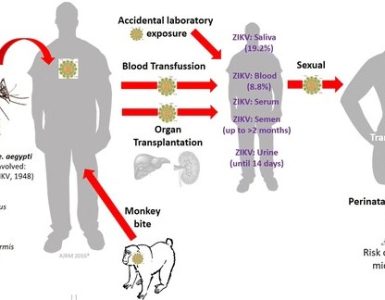COVID-19 mRNA booster vaccines offered protection against severe COVID-19 caused by the Omicron variant for at least 6 months, and three doses of China’s inactivated vaccines were more protective than two doses but not as protective as three doses of mRNA vaccines, finds a study from Singapore published today in JAMA Network Open.
Researchers at the National Centre for Infectious Diseases in Singapore studied the effectiveness against infection and severe illness of two or more doses of the Pfizer/BioNTech or Moderna mRNA COVID-19 vaccines or the inactivated Sinovac, CoronaVac, or Sinopharm Chinese COVID-19 vaccines in 2,441,581 residents aged 30 years or older from Dec 27, 2021, to Mar 10, 2022, during Omicron predominance. Of all participants, 52.4% were women, and 34.7% were 60 years or older.
A total of 90.2% of all participants received three doses of COVID-19 vaccine by the end of the study period, 97.8% of them with an mRNA vaccine and 2.2% with an inactivated vaccine, while 9.8% had received only two doses, 93.8% with an mRNA vaccine.
mRNA vaccines were deployed in Singapore in late 2020 and early 2021, while inactivated vaccines didn’t become widely available until fall 2021. To fulfill vaccination requirements in Singapore, residents who receive three doses of inactivated vaccine must follow the series with an mRNA booster dose.
Booster may be needed after inactivated vaccine series
Among the 2,441,581 participants, 319,943 (13.1%) tested positive for COVID-19, and 1,513 (0.4%) were severe infections.
Estimated vaccine effectiveness (VE) of an mRNA booster against Omicron infection was 31.7% to 41.3% after 15 to 60 days and waned rapidly over time. Estimated mRNA booster VE against severe COVID-19 was 87.4% and didn’t wane for up to 6 months. The estimated VE of three doses of inactivated vaccine against severe illness was 69.6%.
Five or more months after the booster dose, estimated mRNA VE against infection declined, ranging from -2.8% to 14.6%. Estimated VE against severe illness was 87.4% (95% confidence interval [CI], 83.3% to 90.5%) 15 to 60 days after receipt of an mRNA booster dose, falling slightly to 87.2% (95% CI, 84.2% to 89.7%) at 5 or 6 months, regardless of vaccine combination.
Estimated effectiveness of three doses of inactivated COVID-19 vaccine against severe infection was 69.6% (95% CI, 48.7% to 81.9%) at 15 to 330 days, regardless of combination. More than 2 months after a third dose of inactivated vaccine, effectiveness against infection was 12.5% (95% CI, 8.5% to 16.3%).
“We found that booster mRNA vaccination markedly increased protection against severe COVID-19 and was durable over at least a 6-month period regardless of vaccine combination, suggesting that a fourth mRNA vaccine dose is not required for adults without risk factors for additional protection against severe COVID-19 in this time interval,” the researchers wrote.
But because VE against Omicron infection wanes rapidly after two and three mRNA vaccine doses, a fourth mRNA dose may increase protection, the authors said.
“Our results support consideration of boosting following a 2-dose or 3-dose inactivated SARS-CoV-2 vaccine regimen,” they concluded. “Ongoing monitoring of booster effectiveness over longer time intervals and in response to any further SARS-CoV-2 variants is crucial to determining optimal COVID-19 vaccination strategies.”
Source: CIDRAP

















